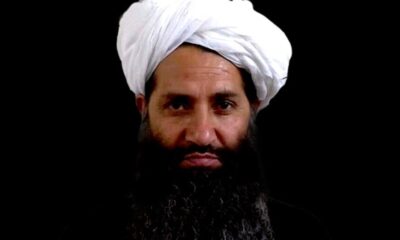Latest News
Remote villages destroyed, families decimated in eastern Afghanistan

Scenes of utter devastation continued to emerge Friday in the remote Gayan district of Paktika province, as emergency efforts to treat the injured and provide essential aid continued.
In the village of Slasha, a young girl sat on the rubble of what was once her home, and held on tightly to her young brother who sat on her lap.
Najia told Ariana News at the scene that her mother and two sisters had been killed in the early hours of Wednesday morning when their house collapsed during the quake.
Another resident, Momen Khan, said that of the 30 villages in the district, at least six had been completely destroyed. He said that over 350 people were killed in these six villages.
Another child, of just four, sat with two other girls on rubble in Khanaden village. The four-year-old, Alima, said her mother and three sisters had been killed while her father and another two sisters were injured.
Meanwhile, on the outskirts of Slasha village lay the newly laid out cemetery, with jagged rocks marking each grave. It was here where survivors hurriedly buried their loved ones Thursday, in keeping with Muslim tradition.
Residents said that 80 people had been buried here on Thursday, all of whom had lived in just two villages in the area.
On Friday morning, grieving survivors could be seen sitting at some of the graves as they struggled to come to terms with the tragedy.
One survivor, 65-year-old Abdullah Abed, sat at one grave and said he had lost 12 members of his immediate family in Wednesday’s quake.
Pointing at two graves, he said: “My daughter and my grandson are buried there.”
Again he pointed to more graves and said: “Here, two of my brother’s wives are buried,” adding “and there two of my nephews are buried”.
Jan Mohammad, from Slasha village, said 30 people were killed in his village alone, while Sayed Rahman said he lost five of his immediate family members.
For these survivors, not only have they lost their loved ones but also their homes and livestock.
The Islamic Emirate of Afghanistan (IEA) was however quick to respond to the crisis and did not hesitate to call for help.
So much so that Tony Lanzer, the former UN deputy special representative for Afghanistan said Friday that the speed of help provided by this regime in Kabul was quicker than any help provided by the former government in similar circumstances in the past.
Meanwhile, Acting Interior Minister Sirajuddin Haqqani visited quake-hit areas and assured locals they would get help.
He said that although the devastation has happened in remote areas which lack resources, the government is working to address the needs of those affected.
The response to the IEA’s calls for help have so far been positive and emergency aid has been sent in by a number of countries including Iran, Pakistan, Turkey, India, Qatar and the UAE.
Flights are landing directly in Khost in order to speed up the process.
Aid organizations and NGOs have also stepped in to help provide shelter, clothing, blankets and even medical facilities.
While help is being provided, Paktika residents were however subjected to another quake early Friday morning – a 4.3 magnitude temblor.
Eleven others were injured, local officials said.
According to the European-Mediterranean Seismological Centre, the quake happened at 6:13 a.m. with its epicenter 55 kilometers south-southwest of Khost province.
Khost was the epicenter of Wednesday’s 6.1-magnitude earthquake that killed over 1,000 people and injured 2,000 others. It was the deadliest earthquake in Afghanistan in two decades.
Latest News
Afghanistan-Iran-Europe railway corridor activated

The Iranian Embassy in Kabul announced on Thursday that the Afghanistan-Iran-Europe railway corridor has become operational.
In a statement, the embassy said the first export shipment from Afghanistan has started its journey through the Afghanistan-Iran railway corridor to Turkey and Europe.
The corridor was activated with the presence of the Iranian Consul General in Herat and the governor of the province, the statement read.
The statement added that the activation of this corridor, with Iran’s cooperation, will contribute to the improvement of Afghanistan’s economy.
Latest News
Amnesty international urges Pakistan to halt Afghan deportations
Amnesty International said that all Afghan nationals are required to leave the cities of Islamabad and Rawalpindi by 31 March
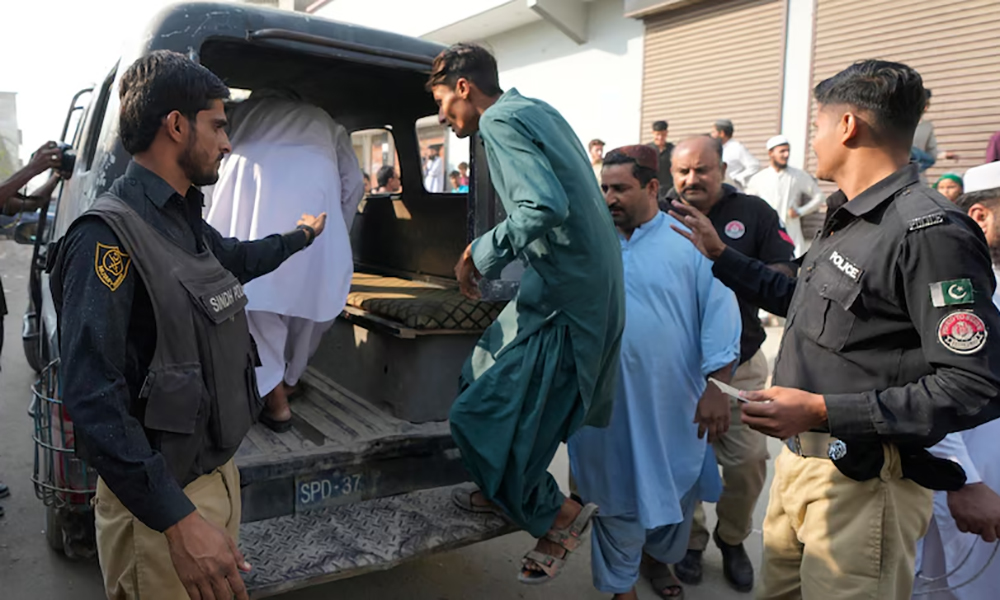
Amnesty International on Wednesday called on Pakistan to immediately withdraw its “Illegal Foreigners Repatriation Plan”, which primarily targets Afghan refugees, ahead of the authorities’ 31 March deadline.
Pakistani government has asked all “illegal foreigners” and Afghan Citizen Card holders to leave the country before March 31, warning they would otherwise be deported from April 1.
Amnesty International said that all Afghan nationals are required to leave the cities of Islamabad and Rawalpindi by 31 March
It said that “arbitrarily and forcibly expelling Afghan nationals, including refugees and asylum seekers, will only add to their plight”.
“The Pakistani government’s unyielding and cruel deadline, which is less than a week away, to remove Afghan refugees and asylum seekers from two major cities, resulting in the deportation of many at risk, shows little respect for international human rights law, particularly the principle of non-refoulement,” said Isabelle Lassée, deputy regional director for South Asia at Amnesty International.
The exact details of the Pakistan government’s ‘Illegal Foreigners Repatriation Plan’ used for deportations has never been made public, but it comes amid a campaign to wrongfully demonize Afghan nationals as so-called criminals and terrorists, Amnesty said.
Isabelle Lassée said that the Pakistani government is only making “a scapegoat of a community that has long been disenfranchised and fleeing persecution.”
Human rights lawyer Moniza Kakar pointed out that forcing Afghan refugees to relocate even within Pakistan is devastating for families. “Many PoR card holders are people who’ve been here for decades, asking them to relocate means you’re asking them to leave homes, businesses, communities and lives they’ve built for years,” she said.
Lawyer Umer Gillani, who has challenged the deportation orders in Pakistan’s Supreme Court and Islamabad High Court, argued that the March 31 deadline was not legally enforceable. “The official notification has not been issued under any particular law; it is just an executive instruction,” he stated.
Meanwhile, the International Organization for Migration (IOM) reported a sharp decline in Afghan returns and deportations during the first half of March. Between March 1 and 15, returns dropped by 67 per cent, while deportations fell by 50 per cent compared to the previous reporting period (February 16-28).
Latest News
IEA leader congratulates Afghans on Eid ul-Fitr
The IEA leader also strongly condemned the Israeli military strikes against the “oppressed and defenseless” Palestinians as a “great injustice and barbarity.”
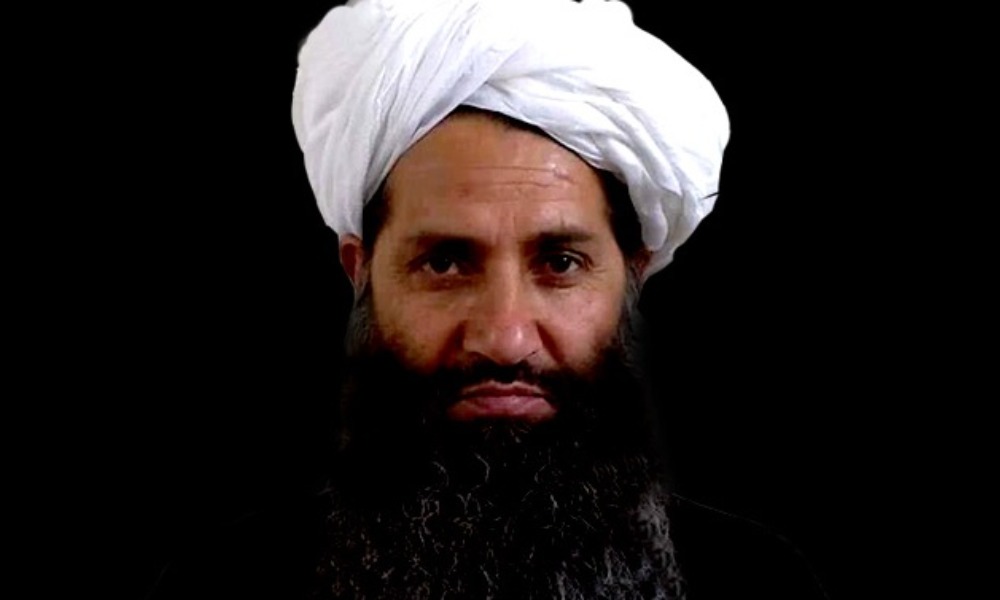
Supreme leader of the Islamic Emirate of Afghanistan (IEA), Mawlawi Hibatullah Akhundzada, congratulated the Afghan people on the occasion of Eid ul-Fitr, calling on them to be strong in their beliefs and not to follow the path of Satan.
In his Eid message, released on Thursday, Mawlawi Hibatullah stated, “Dear Muslim brothers! let us renew our commitment to Allah, the Almighty, and strengthen our resolve to avoid His disobedience and not follow the path of Satan.”
He asked Afghans to thankful to Almighty Allah for security across the country.
“There was a time when on this very day, the funerals of our Afghan brothers were carried out, bombs fell upon us, our homes were searched, and we were dragged into prisons. But now, thanks to Allah, this day has transformed into one of peace and security,” he said.
IEA’s supreme leader reiterated the Islamic Emirate’s resolve to implement Shariah law, instructing courts to ensure judicial rulings adhere strictly to Islamic laws. The message again reiterated that implementing Shariah was a fundamental objective of the Islamic Emirate’s jihad and sacrifices.
On education, Mawlawi Hibatullah said that the educational institutions are tasked with giving serious attention to the correction of beliefs and actions across all educational sectors, aligning their curricula with Sharia, and providing proper training and education to the youth.
Additionally, he cautioned against “harmful propaganda spread by hostile intelligence agencies, who seek to sow despair or create unnecessary concerns about poverty and economic challenges.”
“The Islamic Emirate, with the help of Allah Almighty, is doing all it can to improve your lives.”
Condemnation of Israeli Attacks on Palestine
The IEA leader also strongly condemned the Israeli military strikes against the “oppressed and defenseless” Palestinians as a “great injustice and barbarity.”
“We support the legitimate demands of the Palestinian people and urge the rest of the Islamic world to, as much as possible, support the Palestinians, so they can regain their usurped rights, be freed from the oppression and aggression of the Zionist regime, and put an end to the ongoing atrocities and injustice there,” he said.
-

 International Sports4 days ago
International Sports4 days agoRCB bring fireworks to opening night of IPL 2025
-
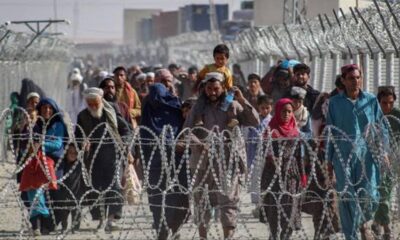
 Latest News4 days ago
Latest News4 days agoTorkham border reopens for pedestrians
-
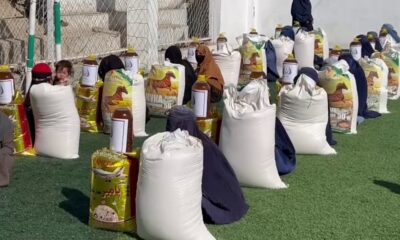
 Latest News4 days ago
Latest News4 days agoBayat Foundation distributes food aid to dozens of needy families in Balkh
-

 International Sports3 days ago
International Sports3 days agoIPL 2025: Sunrisers on a batting rampage; triumph over Rajasthan Royals
-
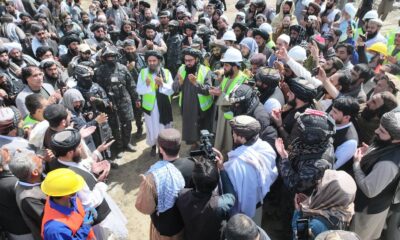
 Business4 days ago
Business4 days agoDeputy PM inaugurates launch of Arghandi Transport Terminal Project in Kabul Province
-

 Latest News3 days ago
Latest News3 days agoEU says girls’ education crucial for Afghanistan’s long-term prosperity
-

 Sport3 days ago
Sport3 days agoACB names Afghanistan A squad for tri-nation series
-
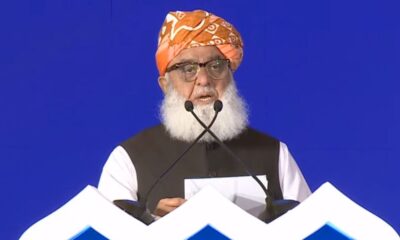
 Latest News4 days ago
Latest News4 days agoPakistan’s mistakes played significant role in rise of terrorism: Maulana Fazl-ur-Rehman










